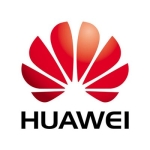What is our primary use case?
We primarily use the solution for surfing and browsing. Students would use it for social media. Professionals might use it for video calling or video conferencing as well. These would be the cases.
What is most valuable?
I really like the Instant On app. It keeps giving me feedback on whether one point is connected or not. I don't know which category this would fall under, yet that's what I really care about. I want to know which access point is currently on, whether it's connected or not, and if it serves the users that are connected to it.
That would be the main thing I would care about in an app since, with other configurations, you can figure out everything on your own. You just need to stay alert, and constantly knowing if that node is on is very useful.
I like the notifications. I really like that it gives me those reports in terms of whether those access points are on or off.
Overall, the product is good. It is scalable and reliable.
What needs improvement?
The restart time should be improved. Whenever one access point has to restart, it takes about 15 minutes to get back in business, and that's a long time. Whether it's some kind of a malfunction or a software update, it takes really long for it to get back up. That would be my main issue.
When you look at networks, it's not really all about the access point. It's also about the other products you need to connect to, and when it comes to the kind of devices and products here available in my market, they're usually slow to get here. For example, if you talk about Wi-Fi 6, Wi-Fi 6 has been deployed in Europe and the US for about a year or two years now. The only AP I have that supports Wi-Fi 6 is the AP22. However, I'm not sure about other products that can utilize the Wi-Fi 6 anyway. If you talk about laptops, I'm not sure if they all support Wi-Fi 6 or if they are available here in my country. You usually get those improvements by default if they are going to launch a new product. I hope this happens with Aruba.
For how long have I used the solution?
I've been using the solution for a year and a half now.
What do I think about the stability of the solution?
The solution is stable and reliable. There are no bugs or glitches, and it doesn't crash or freeze.
What do I think about the scalability of the solution?
The solution can easily scale.
You can even make points talk to each other using the cable or a wireless signal. It's really nice.
We have 200 to 300 people using the solution right now.
How are customer service and support?
I haven't tried any technical support.
Which solution did I use previously and why did I switch?
I haven't tried many access points. However, I've worked with Fortinet and FortiApp, and of course, I've worked with Aruba and when it comes to restarting an access point, the time to get back up and online and connected and all that is much shorter on Fortinet.
How was the initial setup?
The Aruba implementation was really easy. All you need to do is create an account and then tell it whether you want it to be an extension of your current network or to assign different IP ranges. Then, you set up the networks, and that's it. It was up and running in 15 minutes or less.
The only issue is when you add your access points, it takes about seven to ten minutes to be discoverable by the app. That's about it. That's about the worst thing when it comes to timing - to discover that there's a new access point connected. That said, once it's connected, it's up and running in no time.
We do not need many admins for maintenance. We just need one. It's basically my assistant and me, and we're funded. I've had no issues with it whatsoever.
Unless it's a hardware problem - and I have not experienced that yet, and I hopefully won't. You might need to contact the manufacturer themselves to do the work to get it fixed. However, I haven't experienced anything like that yet.
What's my experience with pricing, setup cost, and licensing?
I'm located in Palestine. I bought it from another person who got it from the main distributor and got it to me. This is how it works. While it depends on the model, compared to other products, it's fairly priced.
I'm not sure about pricing worldwide since it could be different. However, it's one of the cheapest solutions here or the more affordable solution. Fortinet is much more expensive, and Unify is even more expensive. If you look at the package as a whole, you're much better off with Aruba. As a business, you always need discounts and cheaper products. If it got even lower, they would get more market share.
We pay about $300 per access point. Fortinet is about $500. It's a one-time fee.
What other advice do I have?
I'm a customer and end-user.
I do have a firewall. However, I manage all the Aruba devices through the cloud, the Instant On Portal, and the Instant On app.
I'd rate the solution eight out of ten based on the slower restart time.
Most people, when they're connected to it, they're satisfied. I have more than 40 or 50 clients connected to each access point, and they're usually satisfied with the service. The coverage could be a bit improved, and we need more control over the radios. It's done automatically via the AP, and sometimes you might want to control that yourself - yet there's no option to do that, or, at least, I have not figured that out yet.
Disclosure: My company does not have a business relationship with this vendor other than being a customer.


















